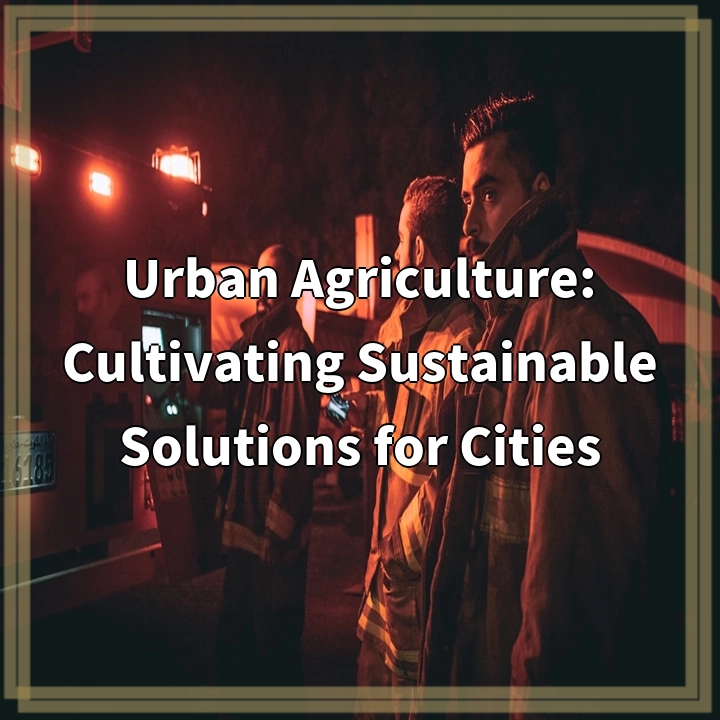Physical Address
304 North Cardinal St.
Dorchester Center, MA 02124
Physical Address
304 North Cardinal St.
Dorchester Center, MA 02124

Urban agriculture is a practice that involves growing and producing food within cities or urban areas. It utilizes various techniques such as rooftop gardens, vertical farming, community gardens, and aquaponics to cultivate crops and raise livestock. This form of agriculture brings agriculture closer to where people live and offers numerous social, economic, and environmental benefits.
While urban agriculture offers several advantages, there are also challenges that need to be addressed for its successful implementation. Some of these real-world problems include:
One of the primary challenges of urban agriculture is the limited availability of space. In cities, vacant land is scarce and often expensive, making it difficult to find suitable locations for growing food. This constraint requires innovative solutions such as vertical farming or utilizing underutilized spaces like rooftops or abandoned buildings.
Urban areas often suffer from soil contamination due to past industrial activities or pollution. This contaminated soil can pose risks to human health and the quality of crops grown. Urban farmers need to employ strategies such as soil testing, remediation techniques, and using raised beds with clean soil to mitigate this problem.
Cities frequently face limited access to water resources, which can pose a challenge for urban agriculture. Water scarcity and restrictions on usage may affect the irrigation needs of crops. To address this issue, sustainable water management practices such as rainwater harvesting, graywater recycling, and efficient irrigation systems are necessary.
Urban agriculture faces regulatory and legal hurdles in many cities, which may include zoning restrictions, permits, and licenses. These bureaucratic barriers can make it difficult for urban farmers to establish and expand their operations. Advocacy for policy changes and collaboration with local authorities are essential in overcoming these challenges.
Another barrier to the success of urban agriculture is the lack of awareness and education among city dwellers. Many urban residents are unaware of the benefits of urban farming and may not support or participate in local initiatives. Public outreach programs and educational campaigns can help bridge this knowledge gap and encourage community engagement.
To address the challenges associated with urban agriculture, several solutions can be implemented:
Vertical farming maximizes the use of limited space in urban areas by growing crops vertically. Utilizing hydroponic or aeroponic systems can further optimize water and nutrient usage. Integrating technology and automation can also enhance the efficiency and productivity of urban farms.
To combat soil contamination, urban farmers can employ techniques such as soil testing, remediation processes, and the use of raised beds with clean soil. Implementing proper waste management practices and composting systems can further enrich the soil and promote healthy plant growth.
Addressing water scarcity in urban agriculture requires sustainable water management practices. This includes rainwater harvesting systems, recycling graywater from households or buildings, and employing efficient irrigation methods like drip irrigation or sensor-based systems to minimize water wastage.
Advocacy and collaboration with policymakers and local authorities are crucial to overcome regulatory and legal hurdles. Engaging in discussions, showcasing the benefits of urban agriculture, and fostering partnerships with government agencies can lead to policy changes that support and encourage urban farming initiatives.
Boosting awareness and education about urban agriculture is essential to garner support from city residents. This can be achieved through public outreach programs, educational campaigns, and establishing community gardens or urban farming networks. Encouraging participation and providing resources and training opportunities will facilitate the growth of urban farming communities.
Urban agriculture presents a sustainable solution for cities to address food security, promote environmental sustainability, and enhance community well-being. By overcoming challenges and implementing innovative solutions, urban agriculture can play a significant role in creating more resilient and self-sufficient urban environments.
If you’re wondering where the article came from!
#